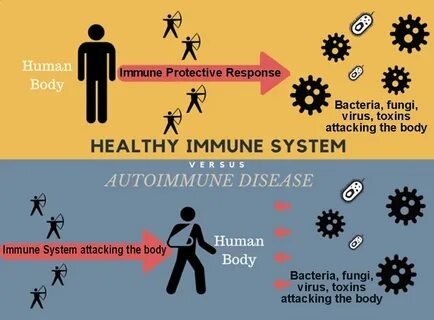healthcare

May 21,2025 • 5 min read
Treatments for Immune Disorders Gaining Global Focus

The human immune system is a powerful network of cells and proteins that defends the body against infections and diseases. However, for millions of people around the globe, this intricate system can malfunction, leading to immune disorders. As the number of individuals affected by autoimmune and immunodeficiency conditions continues to rise, treatments for immune disorders are gaining unprecedented attention worldwide. This article explores advanced therapies, breakthrough innovations, and the evolving global landscape of immune disorder management.
Understanding Immune Disorders: The Rising Global Challenge
Immune disorders are broadly categorized into autoimmune diseases, immunodeficiency disorders, and allergic conditions. In autoimmune diseases like rheumatoid arthritis, lupus, and multiple sclerosis, the immune system mistakenly attacks healthy cells. Immunodeficiency conditions, such as HIV/AIDS or primary immunodeficiency diseases (PIDs), weaken the immune response, leaving the body vulnerable to infections. Allergic disorders, including asthma and eczema, are overreactions to typically harmless substances.
The growing prevalence of these conditions has led healthcare providers, researchers, and pharmaceutical companies to focus on innovative and effective treatments for immune disorders that not only manage symptoms but also target underlying causes.
Cutting-Edge Biologic Therapies: Precision at the Cellular Level
Biologic drugs are transforming the treatment landscape. These therapies are designed to interfere with specific parts of the immune system responsible for inflammation and tissue damage.
How Biologics Work in Immune Disorders
Biologics such as TNF inhibitors, interleukin blockers, and B-cell depleting agents help to modulate immune responses. Medications like adalimumab (Humira) and rituximab (Rituxan) are already widely used for treating autoimmune conditions like Crohn’s disease, psoriasis, and rheumatoid arthritis.
Benefits of Biologics
-
Targeted action reduces broad immune suppression
-
Fewer side effects compared to traditional treatments
-
Long-term improvement in quality of life
However, biologics are often expensive and require careful monitoring, which has prompted ongoing research into making these therapies more accessible and affordable.
Breakthroughs in Immunotherapy: Teaching the Immune System to Heal
Immunotherapy, once a novel concept, is now a cornerstone in treating both cancer and immune disorders. Immune modulation therapies are increasingly used to retrain immune cells to recognize what to attack—and what to leave alone.
CAR-T Cell Therapy and Beyond
Originally developed for cancer treatment, CAR-T cell therapy is being explored for autoimmune conditions. This method involves reprogramming a patient's T-cells to fight specific immune targets. Early clinical trials have shown promise in systemic lupus erythematosus and type 1 diabetes.
Tolerogenic Therapies: Resetting Immune Balance
Scientists are also developing tolerogenic therapies that aim to induce immune tolerance—teaching the body to stop attacking itself. These therapies are particularly promising for chronic autoimmune diseases and could significantly reduce the need for lifelong medication.
Gut Health and the Microbiome: A Game-Changing Perspective
Emerging research highlights the connection between gut microbiota and immune regulation. A balanced microbiome plays a critical role in maintaining immune homeostasis. Imbalances in gut bacteria have been linked to conditions like ulcerative colitis, celiac disease, and type 1 diabetes.
Probiotics and Prebiotics as Supportive Treatments
-
Probiotics help restore healthy gut flora
-
Prebiotics feed beneficial bacteria
-
Combined use enhances immune resilience
Integrating dietary strategies with conventional treatments for immune disorders provides a more holistic approach to long-term care.
Gene Editing and CRISPR: The Future of Immune Treatment
Gene-editing technologies, especially CRISPR-Cas9, offer the potential to correct the genetic mutations responsible for certain immune disorders. While still in experimental stages, CRISPR has shown promising results in correcting immune deficiencies like severe combined immunodeficiency (SCID) and hereditary autoimmune diseases.
Key Advantages
-
One-time treatment potential
-
High precision targeting of disease-causing genes
-
Long-term disease suppression
Although challenges remain, including ethical concerns and regulatory hurdles, gene therapy may soon become a mainstream treatment for immune disorders.
Lifestyle and Nutritional Interventions: Supporting Immune Stability
Medical treatments are essential, but lifestyle and nutrition also play critical roles in managing immune health. A growing body of evidence supports the integration of anti-inflammatory diets, regular exercise, and stress-reduction techniques in improving outcomes.
Practical Immune-Boosting Strategies
-
Anti-inflammatory foods like fatty fish, berries, and leafy greens
-
Vitamin D, zinc, and omega-3 fatty acids for immune support
-
Mindfulness and yoga to regulate stress hormones
These lifestyle choices do not replace medication but enhance the effectiveness of core treatments for immune disorders.
Global Access and Equity in Immune Treatment
Despite medical advancements, access to cutting-edge treatments remains uneven across regions. Many low- and middle-income countries lack the infrastructure and resources needed for early diagnosis and effective treatment of immune disorders.
Strategies to Improve Global Health Outcomes
-
Expansion of telemedicine and digital health platforms
-
International partnerships for affordable biologics
-
Education and awareness campaigns in underserved communities
The global health community is increasingly recognizing the need to make treatments for immune disorders more inclusive and equitable.
Pediatric Immune Disorders: Special Considerations for Children
Children with immune disorders face unique challenges, including delayed growth, recurrent infections, and learning difficulties. Early diagnosis and child-specific therapies are essential to minimize long-term complications.
Promising Pediatric Therapies
-
Intravenous immunoglobulin (IVIG) for immune support
-
Gene therapy in genetic immunodeficiencies
-
Behavioral and nutritional counseling for holistic care
Pediatric cases underscore the importance of ongoing research and tailored treatment plans.
Digital Tools and AI: Revolutionizing Immune Disorder Management
The integration of artificial intelligence and machine learning into healthcare is streamlining diagnostics, treatment planning, and disease monitoring. AI-powered algorithms can identify immune disorder patterns early, even before symptoms appear.
Technological Innovations on the Rise
-
Wearable devices to monitor inflammation markers
-
Mobile apps for medication tracking and symptom logging
-
Virtual consultations to connect with specialists worldwide
These tools enhance patient engagement and help physicians deliver more personalized care.
Shahid Sial Details
User Profile
- Full name
- Shahid Sial
- Email address
- shahidsial784@gmail.com
- Join Date
- 2025-05-16
- State
- City
- Pincode
- Address
- Follow us on Facebook
- Follow us on Twitter
- Website Name
- Bio